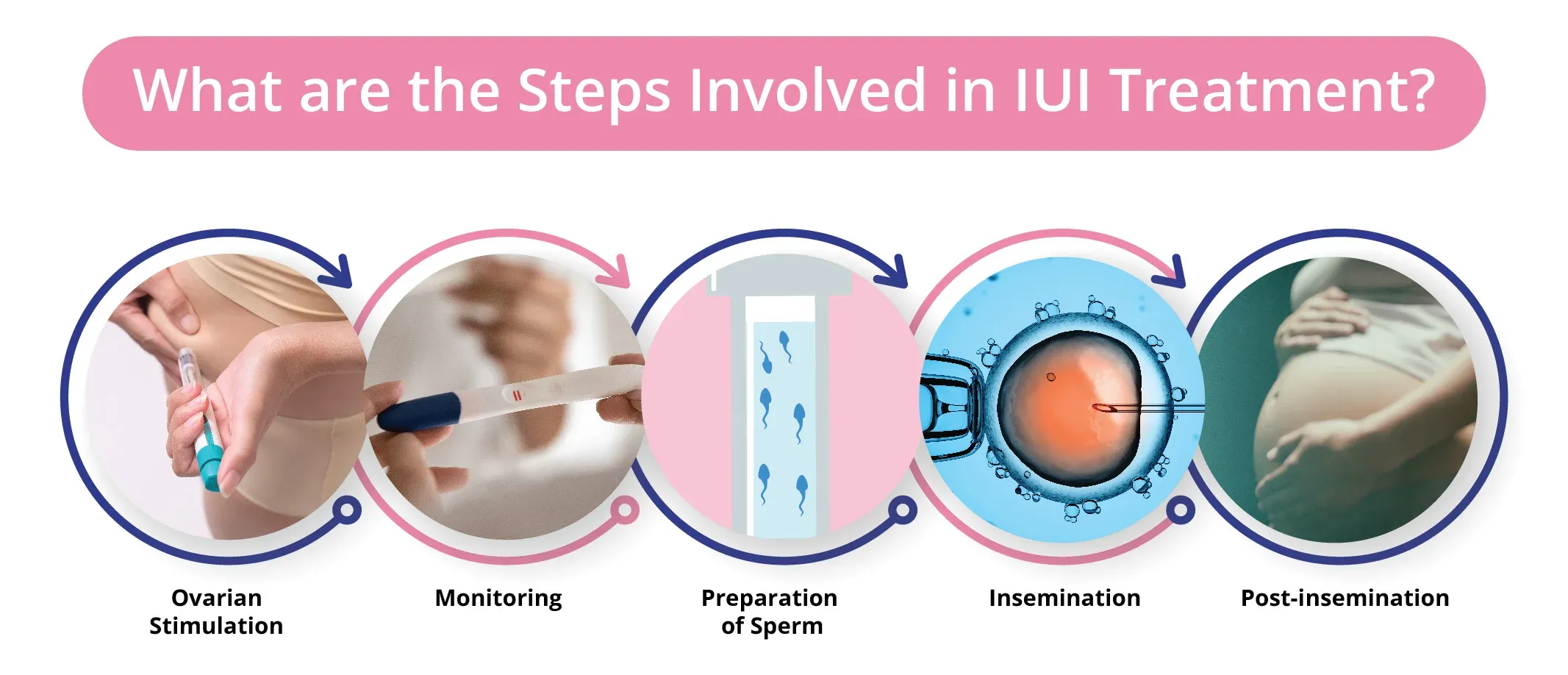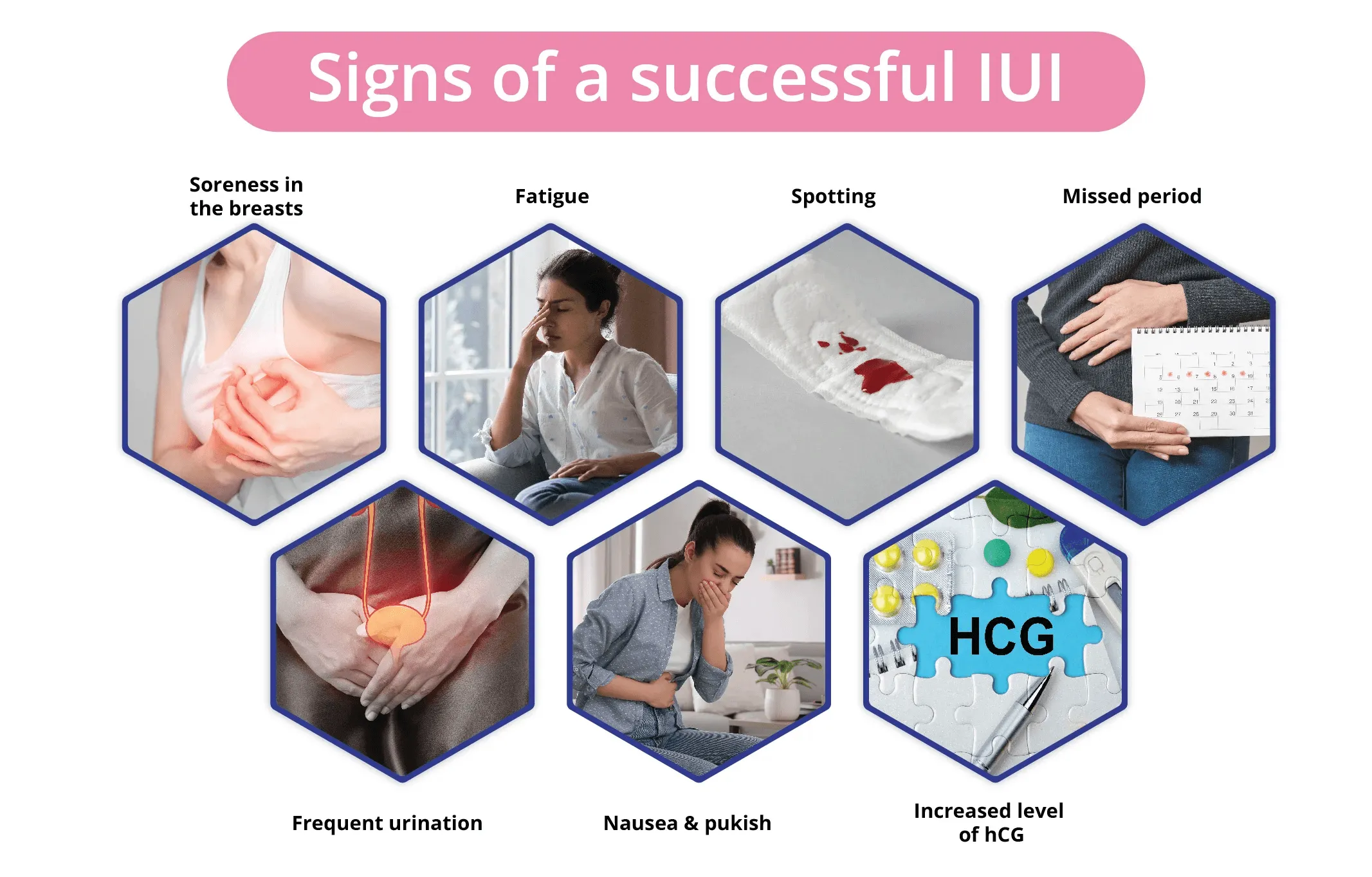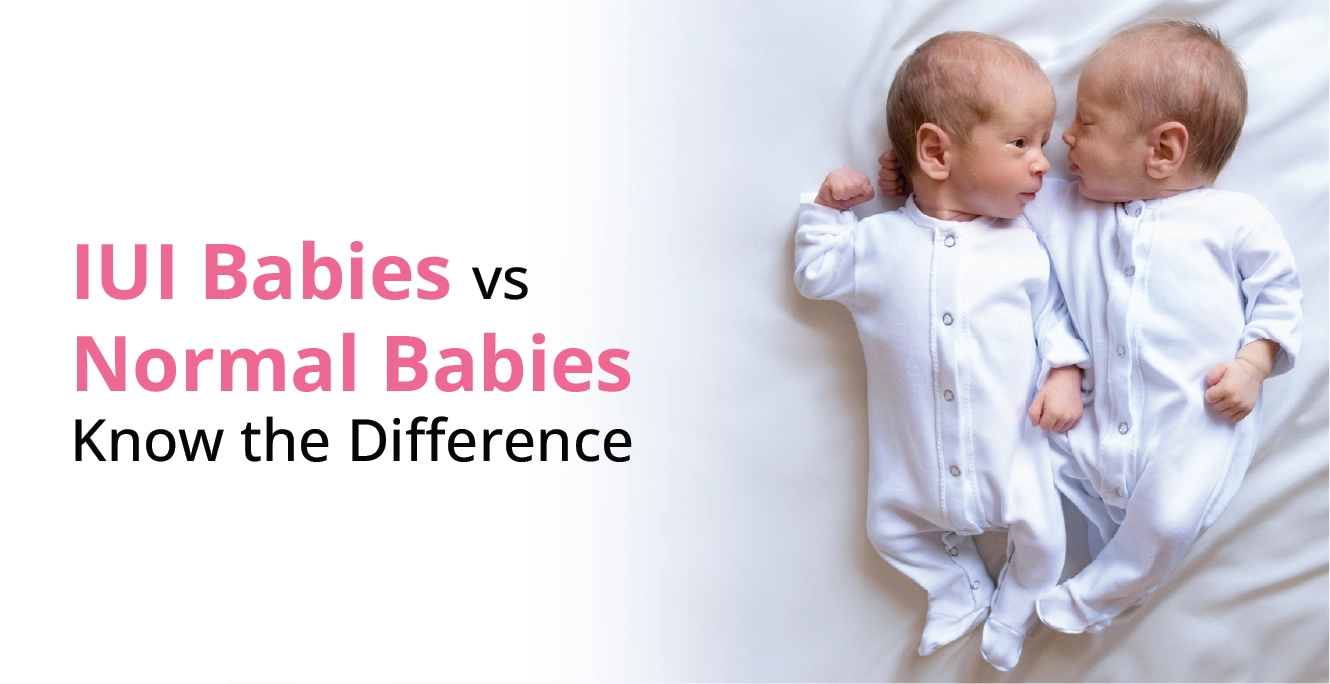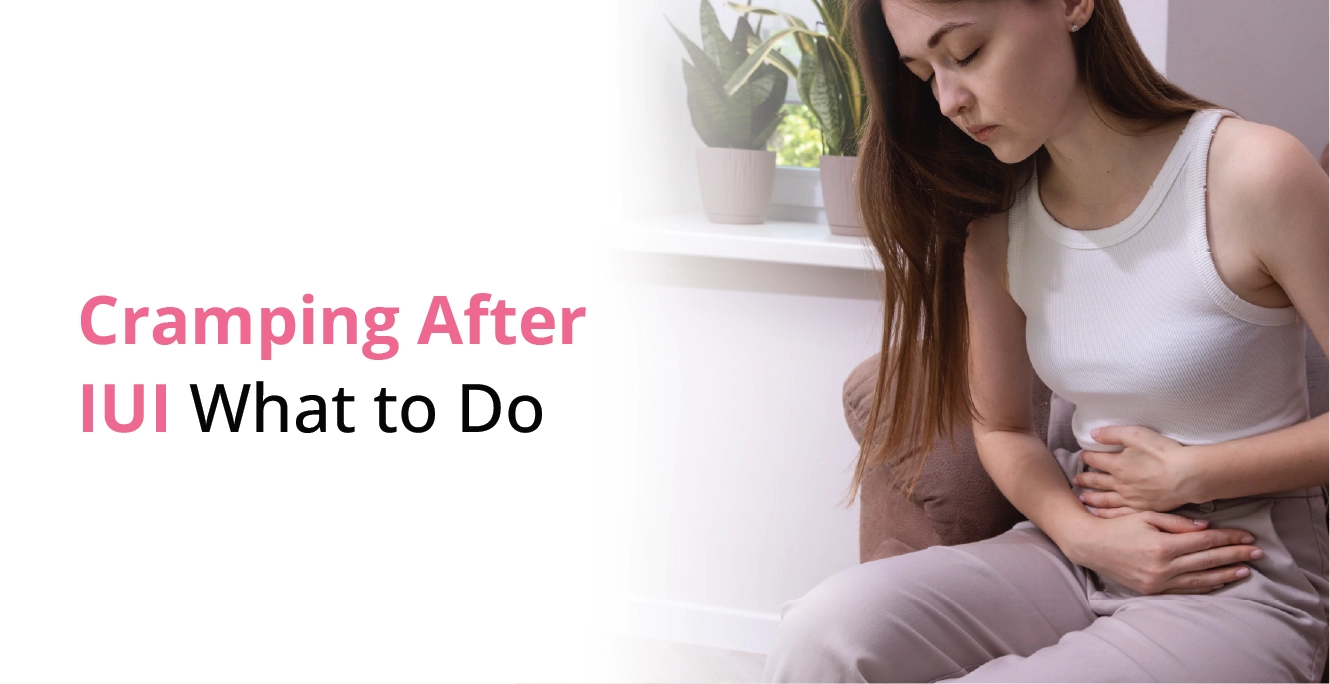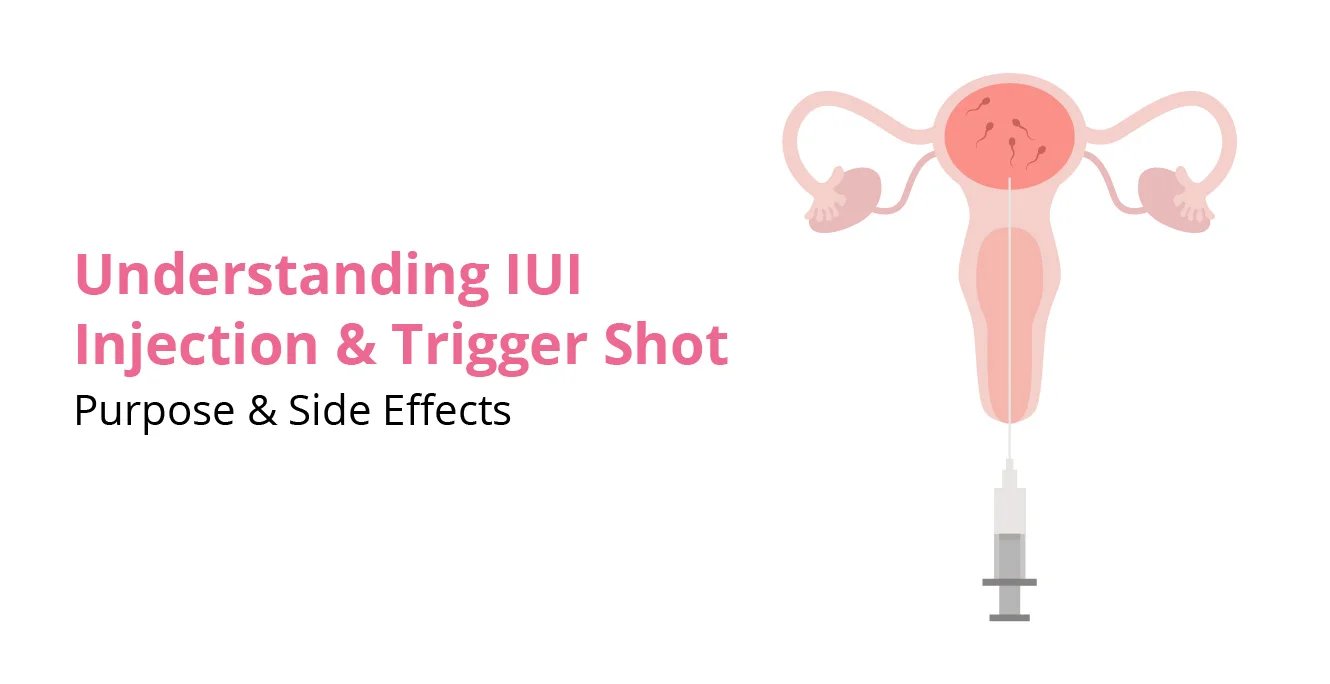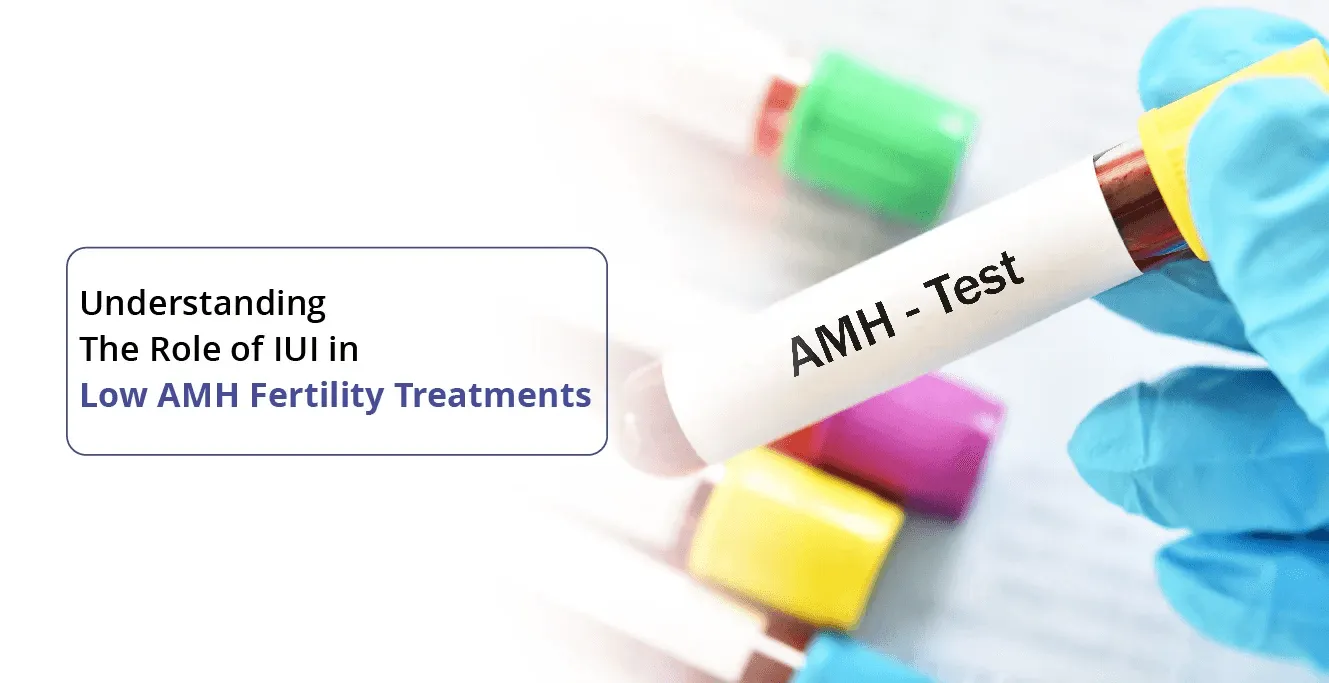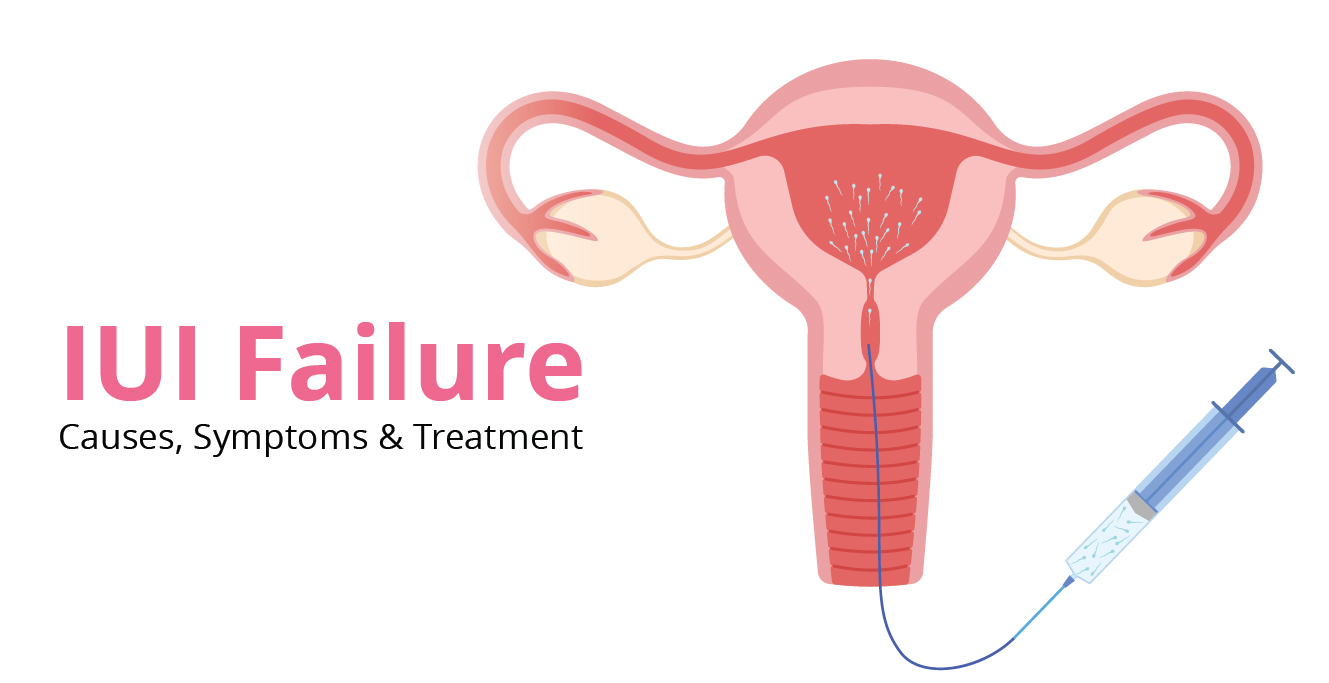
IUI Treatment: Everything you need to know

Table of Contents
- What is IUI?
- What are the steps involved in IUI treatment?
- Difference between IUI and IVF?
- What is the cost of IUI treatment in India?
- Why is IUI recommended?
- What is the IUI success rate?
- Advantages of IUI treatment
- How can you prepare yourself for IUI treatment?
- What are the signs of a successful IUI?
- Tips to improve the chances of successful IUI
- What are the risks associated with IUI?
- What should I do after IUI treatment?
- Reasons for the failure of IUI treatment
- Side effects of medicines used for IUI treatment
- What questions can I ask a fertility specialist for IUI treatment?
- How do I select a fertility clinic for IUI in India?
- Conclusion
- Frequently asked questions (FAQs)
Intrauterine Insemination– IUI is one of the non-invasive assisted reproductive technology (ART) that turn out to be a game changer for couples who are facing unexplained infertility. According to WHO, in India, the prevalence of infertility is evaluated to be between 3.9% and 16.8%.
What is IUI?
Intrauterine Insemination (IUI) is a fertility treatment process. It entails injecting sperm directly into a woman’s uterus in order to improve the likelihood of fertilisation. IUI is frequently indicated for couples or individuals having problems conceiving for a variety of reasons, including low sperm count, sperm motility issues, or unexplained infertility.
What are the steps involved in IUI treatment?
IUI is a straightforward and non-invasive fertility therapy method. When compared to more modern treatments such as in vitro fertilisation (IVF), it is typically less expensive and less difficult. IUI success rates, however, might vary based on factors such as the woman’s age, the cause of infertility, and the quality of the sperm utilised. It is a type of artificial insemination and is typically performed to assist couples who face difficulty getting pregnant naturally. The IUI procedure involves the following steps:
- Ovarian Stimulation: In some situations, the woman may be given reproductive medicines to stimulate her ovaries. These drugs stimulate the ovaries to generate a large number of mature eggs, improving the likelihood of successful fertilisation.
- Monitoring: The woman’s cycle is closely monitored during ovarian stimulation using ultrasounds and, in some cases, blood testing. This assists in determining the best timing for insemination when the eggs are developed.
- Preparation of Sperm: Prior to IUI, a sperm sample from the male partner or a donor is taken and prepared in the laboratory. The sperm is separated from the seminal fluid to separate the healthy, motile sperm.
- Insemination: The prepared sperm sample is put directly into the woman’s uterus using a catheter on the day of insemination. This step is usually painless and does not require sedation.
- Post-insemination: The patient is generally encouraged to rest for a brief period of time. Following the IUI treatment, it is advised to resume normal activities, though vigorous activity or sexual intercourse should be avoided for a short time.
It is critical to seek the advice of a fertility doctor or reproductive endocrinologist who can assess individual circumstances and provide the best treatment alternatives.
Difference between IUI and IVF?
IUI (Intrauterine Insemination) and IVF (In Vitro Fertilisation) are two separate assisted reproductive procedures used to assist couples or people who are having difficulty conceiving. While both techniques strive to make pregnancy easier, there are numerous key differences between IUI and IVF. Here are some significant distinctions:
Procedure –
IUI: During IUI, the woman’s natural ovulation cycle is monitored, and when she is about to ovulate, washed and prepared sperm is put directly into her uterus via a narrow catheter. This brings the sperm closer to the fallopian tubes, where fertilisation usually takes place.
IVF: It is a more complicated and intrusive treatment. It starts with controlled ovarian stimulation, which involves administering fertility medicines to encourage the ovaries to generate numerous mature eggs. After that, the eggs are extracted via a simple surgical procedure. The eggs are fertilised with sperm in the laboratory, and the developing embryos are cultivated for a few days. Finally, one or more embryos are implanted in a woman’s uterus.
Advised for different reasons –
IUI: IUI is frequently advised for couples who are experiencing unexplained infertility, mild male factor infertility, cervical factor infertility, or are using donor sperm.
IVF: IVF is often indicated for couples or people who have more difficult reproductive challenges, such as blocked or damaged fallopian tubes, severe male factor infertility, advanced maternal age, endometriosis, or a history of unsuccessful fertility treatments.
Fertilization occurs –
IUI: After sperm is placed into the uterus, fertilisation occurs spontaneously within the woman’s body, specifically in the fallopian tubes. To fertilise the egg, the sperm must pass through the cervix and reach the fallopian tubes.
IVF: Fertilisation takes place outside the body in a laboratory setting. The eggs and sperm are combined in a culture dish to allow fertilisation to occur. After fertilisation, the embryos are transported to the woman’s uterus.
What is the cost of IUI treatment in India?
The average cost of IUI treatment in India may range from Rs. 10,500 to 12,000. The mentioned cost range is approximate and given for estimation purposes. The range may vary based on various factors that can affect the final cost of the IUI treatment. Following are a few factors for reference that can affect the cost of IUI treatment in India:
- Selected Clinic – The price may vary from one fertility clinic to another, as does the cost of IUI treatment. Every fertility clinic has its own protocols and way of initiating treatment. Therefore, the price may vary in the final cost of the IUI treatment.
- The expertise of the specialist: The fee of the expert may differ from that of the specialist who has a long record of experience. The standard consultation fee for a fertility expert ranges from Rs.500 to Rs. 1000. The fee can go up according to the skills of the specialist. At Birla Fertility & IVF, we offer free consultations, including follow-up consultations, for each patient in need.
- Medication: The price of prescribed medication throughout the treatment will be an add-on to the final cost of the IUI treatment. The dosage of medication may vary from patient to patient based on their fertility requirements.
- Number of IUI cycles – The price may differ if you are taking more than one IUI cycle because of failed results. At times, fertility clinics do give a discount if you are taking multiple cycles. This can be a major contributing factor to the final cost of the IUI treatment.
- The infrastructure of the clinic: If the fertility clinic is constructed with modern infrastructure and all fertility services are provided under one roof, they might charge you more than a clinic with basic facilities.
- The type of fertility disorder: To determine the process of the IUI treatment, the expert diagnoses the type of fertility disorder. Later, the medication is also prescribed after detecting the root cause of the condition.
- Diagnostic test: The expert will recommend a few diagnostic tests to evaluate the fertility health of the patients. The basic diagnostic tests typically include blood tests, such as ultrasonography, and urine cultures.
Why is IUI recommended?
It is frequently prescribed in certain instances since it can boost the odds of pregnancy for couples who are experiencing fertility difficulties. Here are some of the reasons why IUI may be advised:
- Mild to moderate male infertility: If the male partner has a lower than average sperm count, poor sperm motility, or mild sperm structure abnormalities, IUI can overcome some of the obstacles that the sperm may encounter during natural pregnancy and boost the odds of fertilization.
- Ovulation disorders: IUI may be beneficial for women who have irregular or missing ovulation. IUI guarantees that sperm is put into the uterus when the woman is experiencing the most fertile window by monitoring her ovulation cycle and picking the time of the procedure properly, improving the likelihood of fertilisation.
- Unexplained infertility: When a couple has been trying to conceive a baby for a long period of time without success and no specific explanation has been determined, IUI may be advised as an initial treatment option for assisted reproduction in order to achieve a confirmed pregnancy.
- Cervical abnormalities: The cervix may occasionally create hostile cervical mucus, which can obstruct sperm motility and diminish their chances of reaching the fallopian tubes. IUI treatment can avoid this disorder by bypassing the cervix and inseminating the sperm directly into the uterus for fertilization.
- Donor sperm: IUI treatment is typically performed when a couple requires donor sperm owing to male infertility concerns, or when single women or same-sex couples want to start a family and wish to conceive with donor sperm.
- Endometriosis-related infertility: It is considered a painful condition for women. And, when endometriosis negatively impacts natural conception, IUI may be considered a less invasive option before pursuing more complex procedures such as in vitro fertilisation (IVF).
These are general conditions for which IUI treatment is usually recommended. However, the severity and type may vary from one patient to another, as may the need for treatment. After a thorough diagnosis, an expert can determine whether IUI treatment or IVF is required to achieve a successful outcome.
What is the IUI success rate?
The IUI success rate is generally measured based on several factors Usually, IUI success rates are as follows:
- Women below 35 years old: The success rate of IUI every cycle is between 10% and 20%. Within six cycles, the cumulative success rate can rise to 60-70% with several cycles.
- Women aged 35 to 40: The success rate per cycle drops somewhat to roughly 10%. Within six rounds, the cumulative success rate is normally approximately 50%.
- Women above the age of 40: Because of declining fertility, IUI success rates fall considerably with age. The success percentage per cycle is often less than 10%. However, it is critical to address unique situations with a fertility professional because success rates may vary depending on certain conditions.
Advantages of IUI treatment
Here are some of the benefits of IUI treatment:
- Non-invasive: When compared to more complex procedures such as in vitro fertilisation (IVF) and ICSI, IUI is a relatively non-invasive fertility treatment. It does not require any surgical intervention or anesthesia to perform the procedure.
- Healthy sperm selection: IUI involves thorough concentration and preparation prior to insemination, which helps to crystallize and select the healthiest sperm for the fertilisation process. This enhances the likelihood of successful fertilisation outcomes.
- Timing optimization: IUI enables exact sperm delivery timing. The technique is usually done after picking the peak window around ovulation to ensure that sperm are present in the uterine lining when the egg is released from the fallopian tube.
- Mild side effects: IUI is generally well-considered among couples facing unexplained infertility. However, it has a few adverse effects, such as mild cramping or spotting. Although these symptoms normally pass quickly and can be managed through guidelines given by your fertility expert.
- Less expensive: When compared to more complex fertility treatments such as IVF, IUI treatment is relatively less expensive. It requires fewer medications and laboratory procedures, making it a more affordable treatment option for couples experiencing fertility problems.
- Natural conception process: IUI treatment boosts the chances of natural conception by increasing the probability of sperm fertilisation. Also, with IUI treatment, you increase the chance of confirmed pregnancy.
How can you prepare yourself for IUI treatment?
Here are a few tips that can help you prepare for your IUI treatment:
- You can always do a bit of research about the IUI treatment and its process to get an overview. This will help you prepare for the procedure and make informed decisions.
- Always schedule an appointment with an experienced fertility expert to get better clarity about the IUI treatment and get more details about it.
- Schedule your diagnostic tests a week in advance to arrive on time and to be free from stress.
- Practice following a healthy routine, like eating proper and nutritious food, doing regular exercises and avoiding unhealthy food items that can complicate your IUI treatment.
- You can always share information about your IUI treatment with your close friends and family to get support and comfort when needed.
What are the signs of a successful IUI?
A successful IUI treatment can be indicated by multiple signs. Some of them are as follows:
- Soreness in the breasts – You may feel changes in the areola region. Also, at times, some women experience swelling and tenderness in their breasts.
- Fatigue – There is a possibility you will experience constant fatigue. Also, you may feel drowsy and dizzy because of tiredness.
- Spotting – Mostly, after a week, you may notice light blood spotting. It is also referred to as implantation bleeding.
- Missed period – Missing your menstrual cycle after completion of the IUI cycle can indicate confirmed pregnancy.
- Frequent urination – After a week of fertilization you can expect hormonal changes and pressure in your lower abdomen area, resulting in the urge to urinate frequently.
- Nausea and pukish – It is a classic sign when a woman who is expecting may experience nausea and pukish, especially during the morning time
- Increased level of hCG – In blood test reports, progression in the hCG level can indicate successful conception.
Tips to improve the chances of successful IUI
Here are a few tips that can help you improve your chances of a successful IUI:
- Know your diet – It is very important to know what you are eating and what you should avoid. Follow a healthy diet plan that includes all the necessary nutrients and vitamins to boost your overall fertility health.
- Choose a reputed fertility clinic – This is one of the critical steps before initiating your IUI treatment. Choose your fertility clinic based on its success rate, the experience of the doctor, the services provided by the clinic, and the technology they are using for the IUI treatment.
- Ensure a healthy lifestyle – If you have undergone IUI treatment and want to increase your success chances, then it is essential to follow a healthy lifestyle. Eliminating alcohol, tobacco intake, and junk food can help you improve your chances of IUI treatment. Also, including minimal exercises such as yoga and light physical activities can result in a positive outcome.
What are the risks associated with IUI?
IUI treatment is performed with assisted reproduction technology. It is safe and effective, however, with every fertility treatment, there are a few potential risks associated, such as:
- Spotting – Small amount of blood, also known as vaginal bleeding, is very common and usually experienced after 7 days of the IUI cycle.
- Infection – In rare cases, if the medical instruments used during the IUI treatment are not sterilized, it can lead to infection.
- Multiple pregnancies – Fertility medication given for ovary stimulation during the IUI treatment can increase the risk of multiple pregnancies.
- Ovarian hyperstimulation syndrome (OHSS)- At times, the injection given to boost the formation of viable eggs can cause ovarian hyperstimulation syndrome (OHSS).
What should I do after IUI treatment?
Following are a few things you can consider doing after your IUI cycle:
- Get your diet plan fixed by a dietician to stay on track with what you are eating and what you should totally avoid.
- Taking proper rest is one of the most important factors in following post IUI treatment to avoid overexertion.
- Take prescribed medicines and supplements on time and do not skip them, as it may hinder the success chances of IUI cycle.
- Taking stress can have a negative impact on your chances of success after an IUI cycle. To avoid that, you can always join some group activities or other interests.
- Experts strictly advise against strenuous activities and any heavy object lifting, as it can put pressure on the pelvic region.
- You should avoid active and passive smoking.
- Avoid intake of alcohol and caffeine.
- You should avoid swimming for at least 2–3 weeks after insemination, or you can always ask your doctor about the right time to resume it.
Reasons for the failure of IUI treatment
At times, it is unknown and challenging to detect the exact reasons for the failure of IUI cycles. The major contributing factors that lead to failed IUI cycles are:
- Poor quality eggs
- Sperm abnormalities
- Ovulation disorder
- Deficiency of progesterone
- Uterine abnormalities
- Age
Side effects of medicines used for IUI treatment
The medicines and injections are recommended to boost the formation of healthy eggs. The dosage of medication during IUI treatment is given based on the severity and type of the fertility disorder, which may vary from one patient to another. Here are a few potential side effects of fertility medications and injections:
- Nausea and vomiting
- Mood swings
- Anxiety
- Soreness in breasts
- Discomfort in the pelvis region
- Ovarian cysts
- Bloating
- Rash and bruising around the injection area
- Headaches
- Mild to severe cramping
- Hot flashes
What questions can I ask a fertility specialist for IUI treatment?
Here are a few questions that you can ask your fertility experts for better clarity about the IUI procedure:
- When can I see the result after my first IUI cycle?
- What is the success rate of IUI treatment?
- Is the IUI cycle painful?
- Will I be able to conceive on my first attempt?
- Does IUI treatment mean a natural pregnancy?
- Are there any risks involved in IUI treatment?
How do I select a fertility clinic for IUI in India?
A few tips that can help you choose the right fertility clinic in India:
- Evaluate the reputation of the fertility clinic you have shortlisted.
- Check the experience record of the fertility expert.
- Choose the clinic that has the best infrastructure to avoid any hassle during your treatment journey.
- Read reviews of the fertility clinic to learn about patients’ experiences.
- Check the location of the fertility clinic and know how far it is from your place.
- Know what services they are providing during IUI treatment.
- Check all the payment options provided by the chosen clinic.
Conclusion
Intrauterine insemination (IUI) treatment is commonly recommended for couples with unexplained infertility. Also, it is a non invasive, safe, effective, and budget friendly fertility treatment compared to other treatment options for assisted reproduction. The above article gives thorough details about IUI treatment. Give it a 8 minute read to learn everything about artificial insemination: advantages, risks, side effects, and procedure. If you are looking to undergo IUI treatment and need expert advice, book a free appointment with our fertility expert today for a free consultation. Or, you can fill out the given form with the required details, and our executive will call you at the earliest possible time to hear your concern and to solve it promptly.
Frequently asked questions (FAQs)
Is IUI treatment painful?
No, it is not a painful procedure. However, you may feel a little discomfort or a slight pinch during the IUI process for insemination. Also, some women have stated that they didn’t feel any pain during the process, this happens because every patient has a different level of pain tolerance.
How long does the IUI process take?
The whole IUI procedure may take 10–15 minutes. Though, the duration may vary from one patient to another based on the severity of the case.
Does it bleed after IUI cycle?
If the IUI cycle is successful, then the patient may experience spotting or a small amount of blood, which is also known as implantation bleeding.
Are there any major risks associated with IUI treatment?
IUI treatment includes fertility injections and medications that are recommended to boost the stimulation of the ovaries. These fertility drugs may result in potential risks such as multiple pregnancies, OHSS, etc.
What is the full form of IUI?
IUI is the acronym for “Intrauterine Insemination” – a procedure to directly insert washed and concentrated sperm into the uterus to aid fertilisation.
When is the best time to have IUI?
Intrauterine insemination is done near the time of ovulation. The washed sperm is placed into the uterus when the ovary releases an egg for the process of fertilisation. The ovulation period is different for every woman and is monitored when getting into IUI treatment.
Our Fertility Specialists
Related Blogs
To know more
Birla Fertility & IVF aims at transforming the future of fertility globally, through outstanding clinical outcomes, research, innovation and compassionate care.
Had an IVF Failure?
Talk to our fertility experts

 Our Centers
Our Centers


